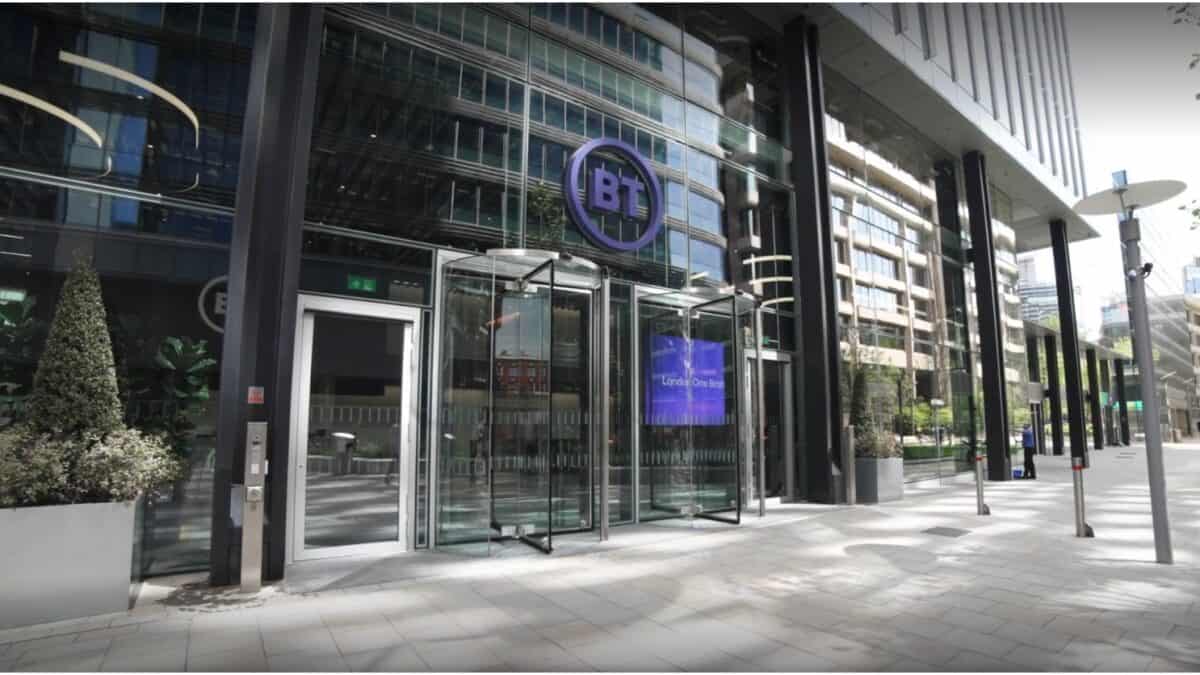During 2023, the BT (LSE:BT.A) share price increased 10%. As well as enjoying some capital growth, shareholders also received dividends of 7.7p a share.
The stock’s had a volatile 12 months. It increased steadily from January until April, when it reached a peak of 160p. Over the next six months it fell, dropping to 110p in October.
Since then, it’s recovered slightly and is now approximately 10% above its 52-week low. But it still remains 50% off its five-year high of 239p, achieved in January 2019.
Unimpressive growth
BT’s problem is that it’s struggling to grow at the rate expected of a FTSE 100 company.
For the year ended 31 March 2023, total group revenue was £20.4bn. The consensus forecast of the analysts covering the stock is for this to increase by only 3.8% — to £21.2bn — for its 2026 financial year.
EBITDA (earnings before interest, tax, depreciation, and amortisation) is expected to rise by a disappointing 5% over this period, from £8bn to £8.4bn.
And adjusted earnings per share, which is calculated after tax, is expected to fall in 2024, 2025, and 2026.
Drowning in debt
But of more concern, is that net debt (including lease liabilities) is forecast to go from £18.9bn at 31 March 2023, to £20.6bn, three years later.
The telecoms industry requires huge investment in infrastructure.
And BT continues to pay for a large part of this by borrowing. Fortunately, the majority of its debt carries interest at a fixed rate. But there’s a small proportion that will fluctuate based on the company’s credit rating.
At 30 September 2023, the company’s total debt was equivalent to 120% of its forecast revenue for its 2024 financial year, which I think is on the high side.
To compound matters, it also has a ‘black hole’ of £4bn owing in its pension fund.
It’s difficult to see how BT’s debt issue can be addressed quickly without a significant injection of new capital.
This could come from a takeover. Rumours persist that the company’s two largest shareholders — Patrick Drahi (24.5%) and Deutsche Telekom (12%) — might be potential suitors.
But Drahi is believed to be supportive of the current management team and has previously denied wanting to buy all of the company.
And the UK’s competition authorities may block an approach from another rival.
Outlook
At their current level, the company’s shares look attractive.
The price-to-earnings ratio is around six.
And the yield is currently 5.7%, which is above the FTSE 100 average of 3.9%.
But this has more to do with the falling share price than an increase in dividend, which has remained unchanged since being reinstated after the pandemic.
In 2019, the company’s payout was 15.4p, exactly twice what it is today.
With its debt burden and unimpressive forecast growth rates, I don’t think BT’s 2023 share price performance will be repeated in 2024.
However, over the longer term, if the company can communicate how it plans to reduce its borrowings, and convince investors that it has credible plans to expand the business, then I think the stock has the potential to deliver consistently good returns.








